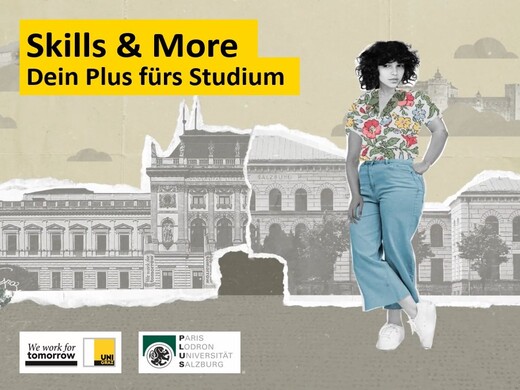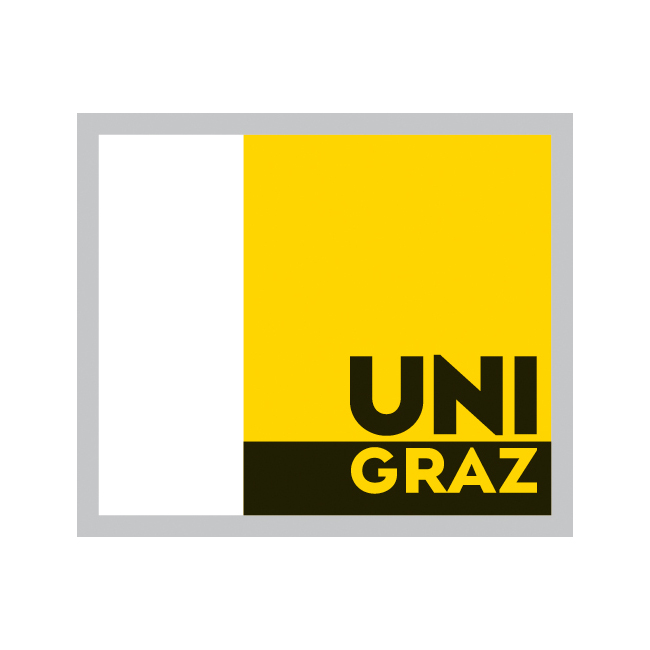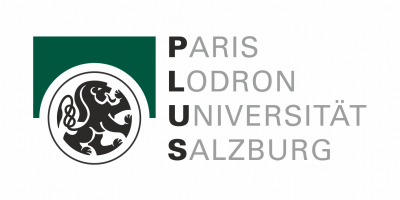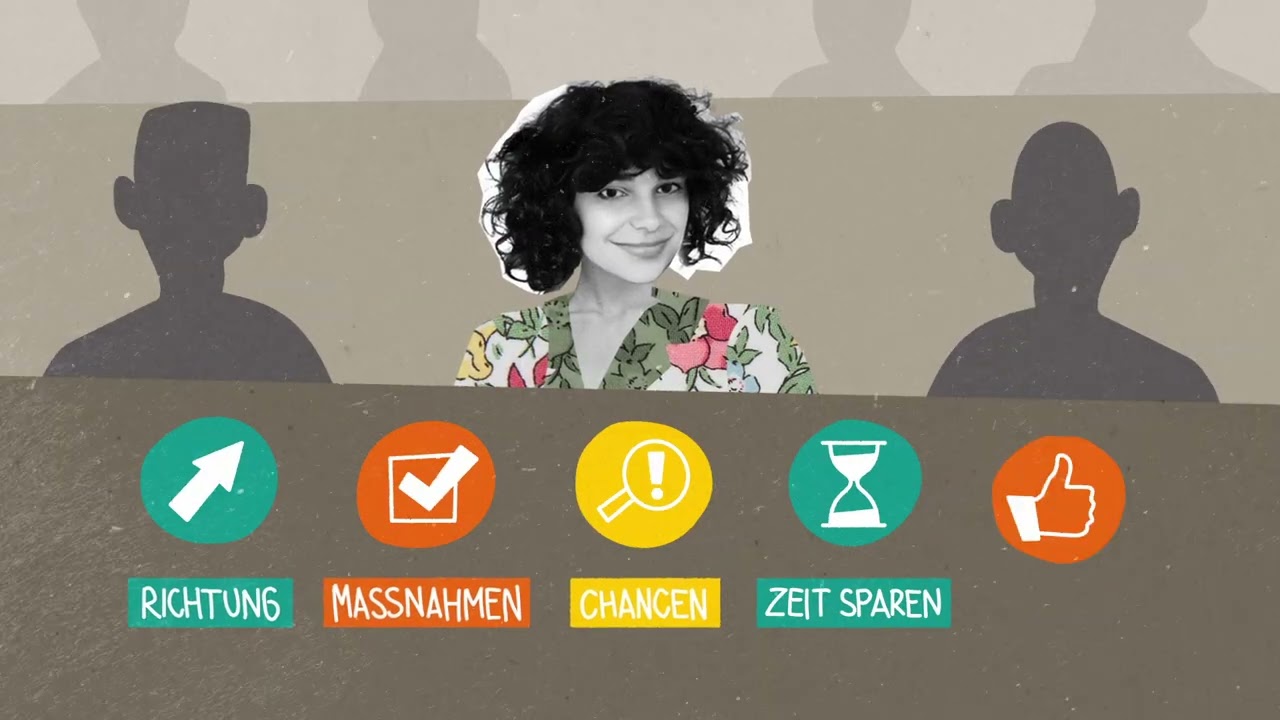


Skills & More: Your plus for your studies
University of Graz, Paris-Lodron-Universität Salzburg
Collaboration between the University of Graz and the University of Salzburg
About
Trailer for Skills & More: Your plus for your studies
General Course Information
#starting uni #studying #orientation #social skills #studyability
Skills & More: the Plus factor for your studies is designed to help both those just starting out at uni and those at a later stage of their studies, and is open to students in all subject areas.
The “Plus” in the course title stands for all the skills you can learn that will help you achieve your study goals, and much more. Each lesson covers a topic that is relevant for everyday life at university and beyond, helping you to acquire skills that are important for your success, stress management and satisfaction as a student and in your professional life.
Over the course of six lessons you will be taught background knowledge and skills that will help you meet the challenges of student and everyday life with confidence. This will help you to add the Plus to your studies and make the most of your time as a student.
Content
Course Content
|
|
|
|
|
|
|
|
|
|
|
|
|
|
|
|
|
|
|
|
|
|
|
|
Course Goals
This course is designed to help you deal with the challenges of everyday life at university and beyond. When you have completed this course, you will be able to...• use appropriate methods for setting goals and achieving them
• set priorities which will then help you to make decisions more easily
• make more efficient and effective use of the time you spend studying and working
• balance work and relaxation in everyday life as a student and beyond
• recognise privilege and disadvantage, using examples from student life and other contexts
• interpret your experiences and emotions at uni with the help of scientific ideas and concepts
• communicate information in a way that is carefully considered and appropriate to the target audience
• research academic topics carefully and identify “fake news”
• improve your understanding of how conflict arises and develops
• deal better with conflict
• recognise stress triggers at an early stage and counteract them
• identify aspects of your everyday life where there is potential for optimisation, to help you work more efficiently and minimise stress
Course Procedure
• Each unit consists of short videos, sometimes with suggestions for further reading or additional study materials
• At the end of each lesson there is a brief quiz, to help you review the material covered
• There are also various types of webinars available.
Certificate
For actively participating in the course you will receive an automatic certificate which includes your username, the course name as well as the completed lessons. We want to point out that this certificate merely confirms that the user answered at least 75% of the self-assessment questions correctly.Licence
This work is licensed under CC BY 4.0Course Instructor
Collaboration between the University of Graz and the University of Salzburg
Univ.-Prof. Dr. Katja Corcoran is head of Social Psychology at the University of Graz. Her areas of specialisation include investigating how people can best be helped to adopt goal-oriented behaviour patterns. She is particularly interested in what motivates people to act in an environmentally-friendly way and to work actively for sustainable energy transition.
Dr. Gayannée Kedia is a researcher in social psychology at the University of Graz. In parallel with her academic research she works as a writing coach and is the founder of abrilliantmind.blog, which aims to help researchers to be more productive and happier in their professional work.
Julius Möller, M.Sc. studied psychology. He is currently working on a PhD on threat and innovation. He is a qualified mediator, coach and trainer, and is studying to become a systemic psychotherapist.
Anna Moser, M.Sc. B.A. studied psychology and education. She is currently working in social psychology and researching various counselling contexts. A major focus of her research is how people deal with stressful situations in their studies and lives, and how they overcome them. She is a qualified mediator, coach, trainer and is training as a systemic psychotherapist.
Dr. Lisa Scheer works in the Competence Centre for University Teaching at the University of Graz, and was previously employed in the university’s Coordination Centre for Gender Studies and Equal Opportunities, where her responsibilities included diversity management throughout the university and the anti-bias circle. She has a doctorate in sociology and is particularly interested in approaches to teaching and learning that question power relationships, are diversity-sensitive and highly motivating.
Mag. (FH) Dr. Maria Stradner is a radio journalist and expert in communications studies. She completed her diploma at the FH JOANNEUM in Graz, followed by a doctorate at the University of Vienna’s Department of Communication. In the study videos for this course she talks about communication from an academic perspective, but also about practical aspects such as rhetoric and presentation methods.
Thomas Vikoler, M.Sc. studied psychology. He is currently researching stress amongst employees, examining what factors cause positive stress (“eustress”) or negative stress (distress) and how both these forms of stress affect our health and productivity.
Georg Zerle, M.Sc. B.A. studied psychology and education. He is currently researching in the field of self-regulation and coaching. He has completed various qualifications in counselling such as coaching, training and mentoring, and is now training as a psychological psychotherapist.
Salzburg meditation collective The “Meditation Kollektiv Salzburg” describes itself as a mindful and open space for anyone interested in meditation, regardless of whether they are beginners or more experienced. It is a space where people can share meditation, exchange experiences and learn about its positive effects.
Additional contributors:
Henrike Ennen, MA in psychology
Simon Eckert, BA in psychology
Login & Enrol Currently: 205 Participants
Free for all € 0.00
Partners
This MOOC Skills & More: the Plus factor for your studies is a collaboration project between
- University of Graz Paris Lodron
- University of Salzburg

University of Graz
Graz

